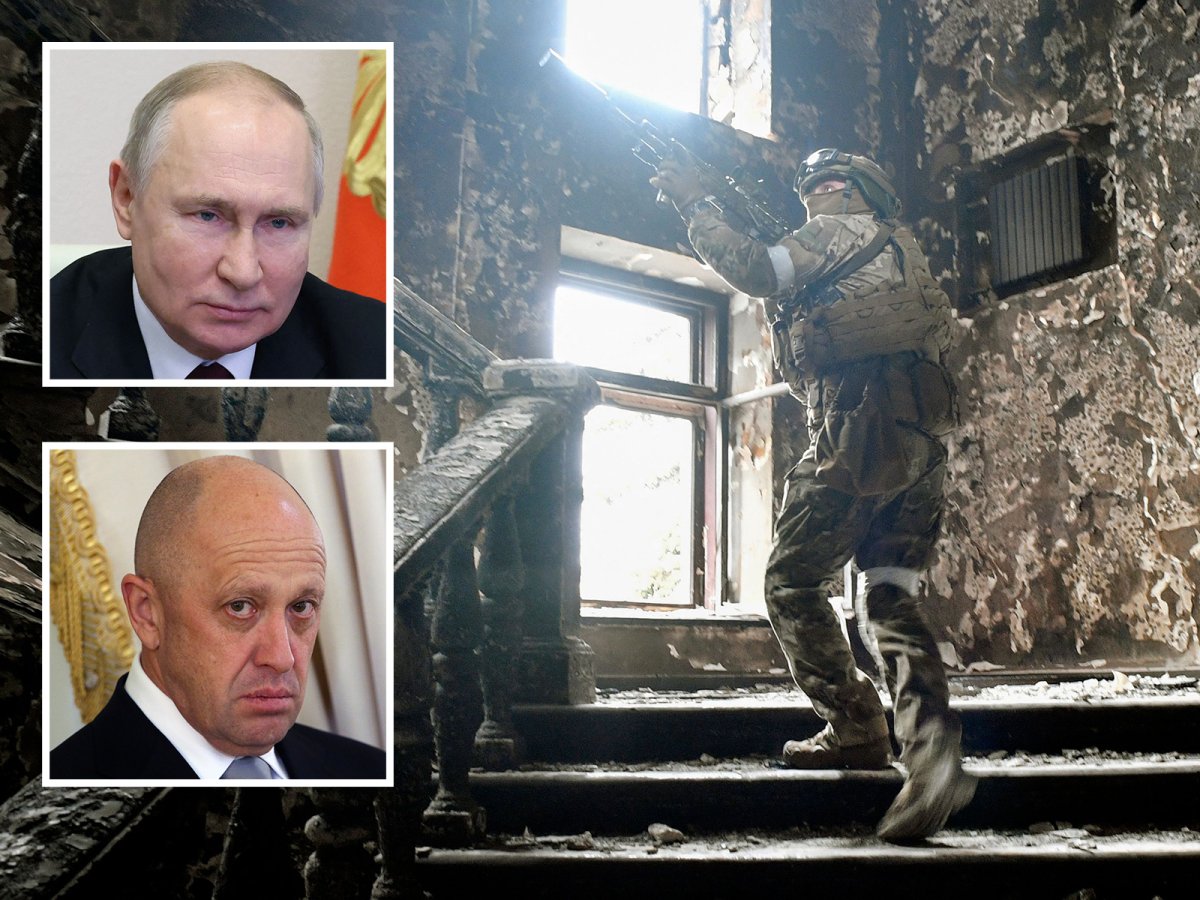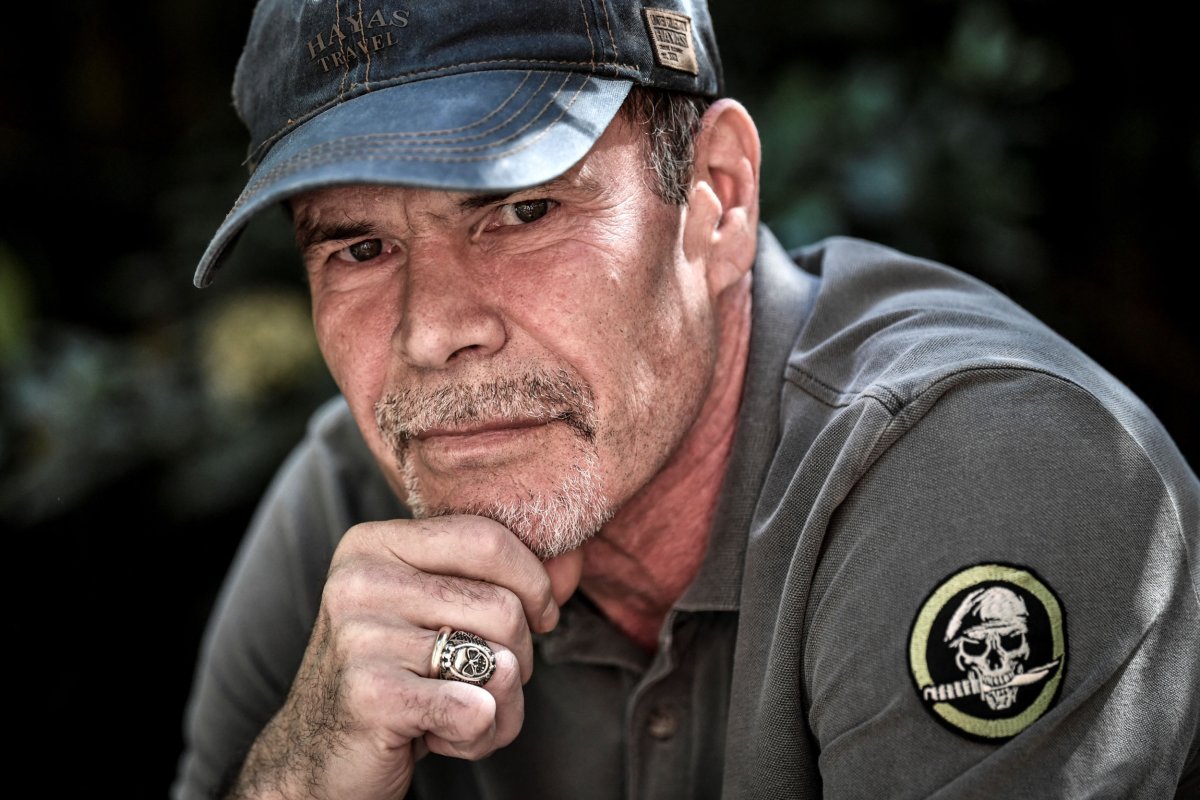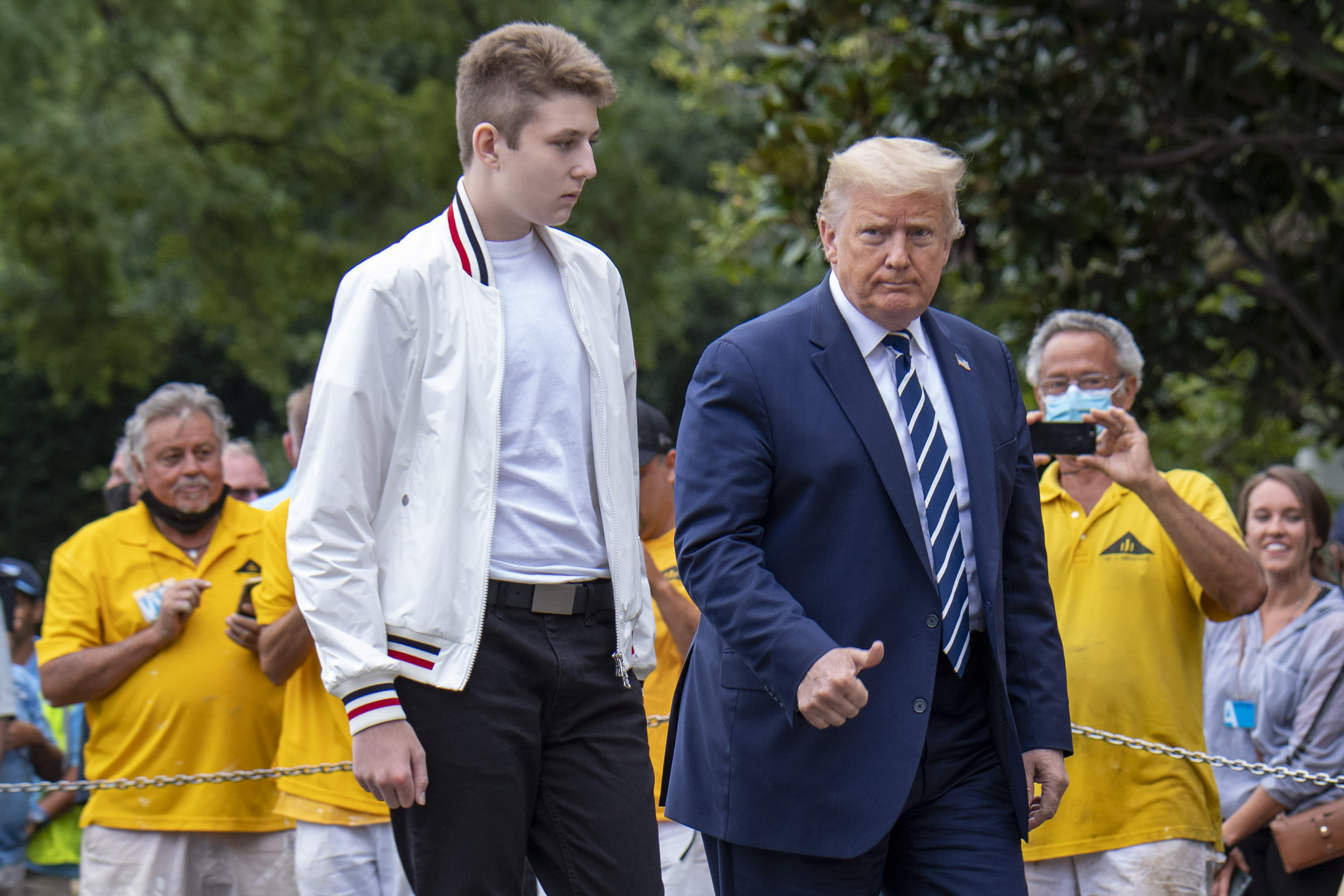For years, the Wagner Group has been shrouded in secrecy—the Kremlin has repeatedly denied its existence, claiming to have no knowledge of the organization which provides fighters for hire.
Russia has—since the shadowy group's formation in 2014—brushed off any links with the state, pushing out disinformation campaigns to obfuscate the West's knowledge of the network.
The Wagner Group has been accused of doing Russia's dirty work in regions including Syria, Libya, the Central African Republic, Sudan, Mozambique, and eastern Ukraine and its contractors have been accused of committing human rights violations while doing so.

Meanwhile, the Kremlin has maintained that mercenaries are illegal under Russian law and that private military security companies would also not be permitted under its legislation to offer services outside of Russia. Thus, the group doesn't exist on paper, has no legal status, and so is not a corporate entity.
But the public narrative in Russia about the sprawling network changed after February 24, when Russian President Vladimir Putin launched a full-scale invasion of Ukraine, and the Russian army quickly began to suffer heavy losses of personnel and equipment.
Yevgeny Prigozhin, a convicted criminal, a Russian businessman, and close ally of Putin, stepped out of the shadows in September and declared himself to be the mastermind behind the paramilitary group, which is heavily involved in the current fighting in Ukraine and assisted the Russian military in the annexation of Crimea in 2014.
He claimed he previously "avoided" associating himself with the Wagner Group to protect the identity of its soldiers.
The group was even lauded on Russian state TV this year as being a major driving force in the war, while in March, Russia kickstarted a process to legalize private military companies (PMCs) in the country.
Sanctions have been imposed by the U.S. and the EU on Prigozhin and the Wagner Group's alleged co-founder, Dmitry Utkin—a former special forces officer and lieutenant colonel in Russia's military intelligence service, the GRU— for their role in Wagner.
Connections With the Russian State
Although the Kremlin still officially denies any direct connections between the Wagner Group and the state, many believe its campaigns are coordinated with Russia's Defense Ministry.
Vladimir Osechkin, a Russian human rights activist and the head of the Gulagu.net anti-corruption project, a prisoners' rights group, has interviewed former members of the Wagner Group.
Osechkin, who is believed to have a vast network of informants inside Russia's prison system, is currently in exile in France. He told Newsweek that former members say the organization exists as a "branch" of the GRU established under the Russian defense ministry.
Newsweek has contacted Russia's foreign ministry for comment.
Osechkin said that Wagner and Russian bases are located next to each other.
"The base of the Wagner Group—it's in Russia's southern Krasnodar region near the village Mol'kino. The land belongs to the Russian army, it's home to its 10th division of special forces, and they gave the land to the Wagner Group," he said.
It's a facade, Osechkin suggested, that the paramilitary group is presented as a private group or an enterprise.
"Members are persons who left the FSB, police, or the Russian army, and they are recruited by an enterprise but, in reality, they entered the Russian army—one part of the Russian army. It's not independent. It's a mask," he said.
Osechkin said equipment and weapons are bought for Wagner Group members by the Russian government, not Prigozhin.
"All that they have is from the state. It's not Prigozhin who buys the armor, the bombs, tanks, and rockets," he said.
Predatory Recruitment Practices
The Wagner Group has been recruiting large numbers of prisoners for Putin's war in Ukraine.
As part of a recruitment drive spearheaded by Prigozhin, the group has been hiring in penal colonies in Russia, offering male prisoners commuted sentences and cash incentives in return for six months of military service in Ukraine.
Osechkin said the Wagner Group has been offering 200,000 rubles ($2,700 approximately) and amnesty for six months of "voluntary" service in Ukraine—if the prisoners return alive.
In September, Prigozhin was seen in a leaked video recruiting soldiers from Russia's extensive penitentiary system, amid reports that the country was facing personnel shortages in Ukraine.
And this month, jailed Russian opposition leader Alexei Navalny said Prigozhin had passed through his prison as part of another recruitment drive.
"Some 80-90 people agreed to go to war," Navalny said in a letter that was published on Twitter.
2/17 Представляете, оказывается, и ко мне в колонию приезжал повар Путина Пригожин для того, чтобы вербовать зеков в свои боевые отряды адъютанта Попандопуло.
— Alexey Navalny (@navalny) December 21, 2022
Osechkin said that since February 24, as many as 30,000 prisoners have been recruited from jail and deployed to Ukraine, while more than 5,000 have been killed in battle and in the camps of the Wagner Group.
Recruitment for the war in Ukraine is taking place in prisons not just in Russia, but also in some countries in Africa, and in Turkmenistan and Kyrgyzstan, Tajikistan, and even Belarus, Osechkin said, citing his sources.
"We have information that the Belarusian prison system opened the doors to Prigozhin and his colleagues to recruit the prisoners this year. We have the document [dated 28 September] about this, when one of the Ministers of Justice of Belarus transferred it to the department of prisons system to open their doors to a group of Russian persons who want to enter Belarusian prisons with Prigozhin."
Newsweek has reached out to the Belarusian foreign ministry for comment.

Sorcha MacLeod, a member of the United Nations Working Group on the Use of Mercenaries under the Human Rights Council's Special Procedures, told Newsweek the Wagner Group has, since its inception, been employing predatory recruitment practices.
"We have seen predatory recruitment practices taking place in other contexts. So for example, in Syria, we received information that the Wagner Group was recruiting individuals from Syria to fight in Libya," she said.
"These predatory recruitment practices involve people being taken advantage of, for example, in situations of armed conflict or poor socio-economic circumstances where unemployment is high. We've seen this in Syria."
The UN working group has also seen a "more insidious" form of recruitment by the Wagner Group, MacLeod said.
"In some cases, we heard that they didn't get the money they were promised. In some cases, where recruits were killed, the families did not get the money. So there was a fraudulent element involved in their recruitment which starts taking you into human trafficking territory. Some of them were told they were being recruited as security guards, and they didn't expect to end up on the frontline of an armed conflict," she explained.
MacLeod said that in some cases, there were threats made against family members, particularly women and girls and their families.
"It would not surprise me if other predatory practices were being used to recruit fighters," she added. "It's quite clear, that there are new trends in mercenary recruitment practices, to find new sources of recruits."
Execution, Torture
The Wagner Group made headlines in November after the execution of Yevgeny Nuzhin, 55, a former Russian convict who was recruited in July.
He gave a string of interviews after he was captured by Ukrainian forces in September, in which he criticized Russian officials and said he wanted to switch sides.
Footage of his killing was published by the Wagner-linked Telegram channel Grey Zone. It showed an unidentified man hitting Nuzhin with a sledgehammer.
Prigozhin said the footage was "excellent directorial work that's watchable in one sitting."
Osechkin said executions and torture are common practices within the Wagner Group, and that many have been killed for refusing to participate in the war.
"Russian instructors and commanders of the Wagner Group have killed prisoners who entered the war but refused to participate. In the last three to four months, there have been systematical kills and torture against people who refuse the group's command."
Osechkin said Nuzhin's commander, Andrei Medvedev, fled from the front lines in Ukraine on November 6 and asked for his help.
"I did an interview with him, and he told us what it is like to work in the Wagner Group," Osechkin said.
"For example, if a new party of 200 to 400 prisoners entered a training center in Ukraine, the Wagner Group then creates a big meeting of ex-prisoners. After that, there is a transfer, and they kill some ex-prisoners—not from this new group, but from the group who recently have entered a rift."
"For example, some people from this party—if they refused to participate in the war after they saw what was happening in reality, and if they do not want to participate and say they want to go back and return to prison—they take some of these people, and the instructors and commanders in the Wagner Group kill them," Osechkin said.
Living in Fear
Some Russian prisoners recruited by the Wagner Group are now living in fear, Osechkin said, suggesting that many are left with no choice but to join once Prigozhin visits a prison camp to recruit more men for the war.
"There is no chance for them to return to prison in reality. If they don't participate, they will be killed. If they participate on the front line, they will die after one to two weeks in the first line in the battle."
Osechkin said he was contacted by one prisoner who was at a training center when Ukrainians attacked his base and killed his Wagner Group instructors and commanders.
He added: "He returned to Russia to his region and now he's scared. He's in his friend's house and asked for my help. He wants to return to Russian prison, and he's very scared that Prigozhin will take him and send him to the war again, and that he'll kill him in the land of the war."
Correction at 12/30/22, 12:20 p.m. ET: This article was updated to state that the Wagner Group is not a corporate entity.
Do you have a tip on a world news story that Newsweek should be covering? Do you have a question about the Russia-Ukraine war? Let us know via worldnews@newsweek.com.
Uncommon Knowledge
Newsweek is committed to challenging conventional wisdom and finding connections in the search for common ground.
Newsweek is committed to challenging conventional wisdom and finding connections in the search for common ground.
About the writer
Isabel van Brugen is a Newsweek Reporter based in Kuala Lumpur. Her focus is reporting on the Russia-Ukraine war. Isabel ... Read more
To read how Newsweek uses AI as a newsroom tool, Click here.






